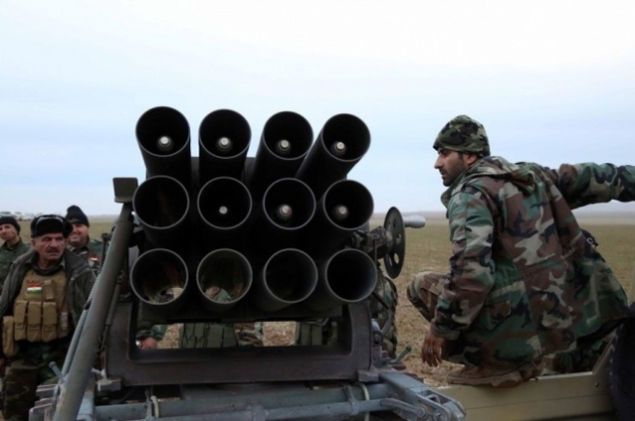Iraqi Kurdish forces have confined thousands of Arabs in “security zones” in areas of northern Iraq that they have captured since August 2014 from the group Islamic State (IS), Human Rights Watch (HRW) said on Thursday.
Kurdish forces for months barred Arabs displaced by fighting from returning to their homes in portions of Ninewa and Erbil provinces, while permitting Kurds to return to those areas and even to move into homes of Arabs who fled, according to a new report by HRW.
Local Kurds told HRW that Iraqi Kurdish citizens or forces of the Kurdistan Regional Government (KRG) have destroyed dozens of Arab homes in the areas, which the KRG appears to be seeking to incorporate into Kurdish autonomous territory.
“Cordoning off Arab residents and refusing to let them return home appears to go well beyond a reasonable security response to the ISIS threat,” said Letta Tayler, senior terrorism and counterterrorism researcher at HRW.
Western backing for Kurdish military force“The US and other countries arming the Iraqi Kurdish forces should make clear that they won’t stand for discrimination under the guise of countering terrorism,” she added.
KRG is a key ally of the United States-led coalition fighting IS, with Washington pledging US $350m to create three new brigades of the Kurdish military force, the Peshmerga. Germany, the UK, Italy, France, the Czech Republic and Albania also are arming or training Peshmerga forces.
Most of the towns and villages where Human Rights Watch found apparently unlawful conduct by Kurdish forces were directly behind or near the front line with IS.
HRW has extensively documented crimes against humanity and other atrocities by IS in Syria and Iraq, as well as violations by the Syrian and Iraqi forces and allied militia.
Discrimination on the grounds of ethnicityInternational law allows forced displacement of civilians during an armed conflict only as a temporary measure to protect local populations or for imperative military needs. It also prohibits discrimination on the grounds of ethnicity or race at all times, including in states of emergency and armed conflict. In addition, international law forbids collective punishment or discriminatory detention.
HRW called on KRG to lift all restrictions on movement that are not clearly justified by military necessity or civilian protection, or that were imposed on the basis of ethnicity.
The rights group also called on the Kurdish authorities to follow through on their commitment to carry out a prompt, impartial and transparent investigation into all other potentially unlawful conduct in areas it controls and appropriately prosecute or discipline any officials, forces or individuals responsible.
HRW urged the United Nations Human Rights Council to extend the investigation mandate of the Office of the High Commissioner for Human Rights on abuses by IS, and broaden it to include serious violations by all sides, including the Iraqi military and allied Shiite militias, as well as any abuses committed by Kurdish military and security forces.
“While the KRG did the right thing in starting to ease these restrictions, it has further to go to curtail discrimination against Arabs,” Tayler said. “The atrocities committed by ISIS, no matter how unconscionable, can’t justify collective punishment of entire Arab communities.”
Peshmerga looting of Christian homesHRW also said it had received complaints from more than two dozen displaced residents of the Chaldo-Assyrian Christian town of Tal Usquf that members of the Peshmerga had repeatedly looted their homes since capturing the town from IS on 17 August.
Pillage, the forcible taking of private property by parties to a conflict, is considered a war crime under international law.
Three residents told HRW they had seen Peshmerga leaving Tal Usquf homes with armloads of belongings.
Several other residents accused the Peshmerga of looting their homes to discourage Christians from returning so the KRG could try to resettle the town with Iraqi Kurds. The residents spoke on condition of anonymity, expressing fear of retaliation from the Peshmerga, and said they blamed the Kurdish forces reluctantly.
“If it weren’t for the Peshmerga, ISIS might still be occupying our town,” one elderly man said. “But I saw them breaking into a house and carrying things out with my own eyes.”


 RSS Feed
RSS Feed